Well…this was unexpected.
As I approached the departure terminal of Ben Gurion airport in Tel Aviv, a security official strode briskly down the concourse and out to greet me. I repeated my story one more time to myself; I’ve spent 2 nights in Jerusalem, 2 nights in Acco, 1 night in the Golan Heights and, lastly Tel Aviv. Still my heart was thumping. I am, after all, a terrible liar.
Arriving in Israel a week earlier, I’d known to expect questions about my visit and itinerary at customs. The only way into the Occupied Palestinian Territories is through Israeli-operated ports but if customs officials have any inkling that you plan to visit the OCP, you can expect speedy repatriation and a 10 year ban.
All this was explained to me on the phone a month earlier by Katie from the International Solidarity Movement, an organisation that resists the Israeli occupation of Palestinian land using non-violent methods.
“And don’t admire any of their things,” she laughed. “I told a Palestinian woman how much I loved her wedding ring and she gave it to me!”
Katie also suggested I delete/deactivate any accounts (Facebook, Twitter, email) in which I’d mentioned my planned trip to Palestine as it was not uncommon for border officials to ask you to log-in to your accounts on arrival.
“Have an alternate itinerary in mind and make a reservation at a hotel in Israel in case the officials want to know where you’re staying. Often they’ll call ahead to check out your story. If it doesn ‘t hold up, you’ll be kept in detention and then deported.”
So far, so Homeland.
“Oh. And delete all Arab-sounding names from your phone. ” Really? That meant deleting my wife, Leyla. Awkward.
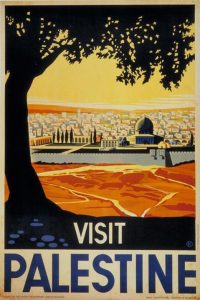
In case this is beginning to sound a touch paranoid, this is pretty much what happened to human rights activist, Frank Barat when he tried to enter Palestine a month after my visit.
A similar thing happened to Costa First Novel Award winner, Nathan Filer and his partner, Emily who turned their detention to their advantage by conceiving a daughter, Ayda in the drab confines of a holding facility ahead of their deportation.
As it happens, I was neither stopped nor questioned when I arrived in Tel Aviv. After a night in Jerusalem ‘s Petra Hotel, one-time hostelry of Mark Twain and Melville, I made my way through the ghastly Qalandia checkpoint to Palestine ‘s de facto capital, Ramallah, in time for breakfast. What was I doing there? That was just the question the security official was asking me on the departures concourse of Ben Gurion airport as he scrutinised my passport a week later.
“Just visiting, sightseeing, ” I answered, handing over my bag for inspection. What was it that Katie had recommended I do before leaving? Delete all photos from your camera and post any souvenirs back to the UK? I ‘d posted the souvenirs back but had I deleted the photos? “Have you visited the West Bank? ” he asked without looking up. “Where did you stay? ” Here we go…2 nights in Jerusalem, 2 nights in Acco, 1 night in the Golan Heights…but as I delivered my story, a bus ticket from the trip I ‘d made that morning from Ramallah in the West Bank back to Jerusalem fluttered out of my passport and onto the floor.
A most delicate of betrayals.
With excruciating poise, the official bent down and retrieved the bus ticket. He then muttered a few words in Hebrew into his radio and moments later, an impeccably-dressed man appeared at my side and politely asked me to follow him. What was I doing there? Two things, actually. Or maybe three.
My first novel is a work of literary fiction set in late Ottoman-era Turkey. Many of the events though are based on the Israeli occupation of Palestine and as such, it functions as an allegory. I was in Palestine to find out what it was like to spend close on 50 years living under occupation. Could I get a sense of the anxiety every Palestinian parent must feel when their child leaves the house in the morning for school? Would my son get shot in a skirmish with the Israeli army for throwing stones? Would my teenage daughter be arrested, detained and interrogated by the army for “terrorist activities? ” Or be killed in an attack by settlers on a school or mosque? Or by the army? How could it possibly feel to lose a child like this and have no legal recourse? Or how to explain to your child why Israeli soldiers raid your home in the dead of night simply to make their “presence known,” freely admitting that you ‘re not suspected of any crime? And what must it feel like to watch vast housing estates full of hostile and often violent settlers go up and gradually surround your village? Or to see those same settlers set alight your olive trees whilst the jeeps and heavy artillery of the Israeli block your way as your rush to save them?
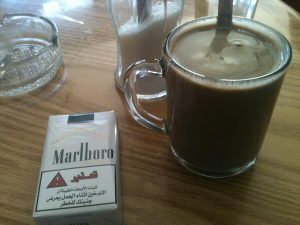
Of course, I would never know. But by the time I passed through my first heavily-militarised checkpoint, with its silent, slate-grey watchtower and coils of barbed-wire on that first bus journey from Jerusalem to Ramallah, I was holding back tears of sadness. And was this the 2nd reason for my visit? To come face to face with the guns and jackboots, the appalling tyranny of the occupation? To, in somewhat old-fashioned parlance, “bear witness? ” I really don ‘t know.
My 3rd reason was more straightforward; to hook-up with schools, teachers and pupils to find some way of using whatever interest my novel might generate to bring benefit to them; the purpose of the Volisto Collective.
With the exquisite hospitality that’s the hallmark of every Muslim country I’ve visited, teachers, directors and politicos chaperoned this sweaty, unkempt and unannounced stranger from school to directorate to staff room, plying him with mint tea, cigarettes and questions about life in the west.
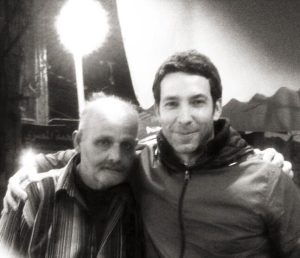
When I related all the very many demonstrations that took place in the UK against the occupation, the bustling and chaotic staff room fell quiet and somebody whispered, “thank you “. I, for my part, tried not to openly admire anything, as per Katie ‘s advice, in case it was gifted to me. I was fed and taxi ‘d and invited to the homes of men I ‘d only just met. I was also given the opportunity to stand up and teach English to a room of 40 boys with impeccable English. But beneath the happiness I felt at being so welcomed, there hummed a sense of being unsafe. It was particularly acute when we drove past illegal Israeli settlements or were overtaken by settler ‘s cars with their vivid yellow number plates.
I felt it too when I entered the dangerous unpredictability of Israeli-controlled checkpoints and was steered by a gun barrel through the jaws of metal detectors. That sense of ever-present threat settled into my gut and when I came home, powered the last big push to get my novel finished (I ‘d been going for 9 years at this point). The trembling disquiet that I ‘d experienced lent menace to the novel ‘s darker moments just as, I hope, a deeper beauty seeped into the novel out of all the little heartbreaks I ‘d undergone.
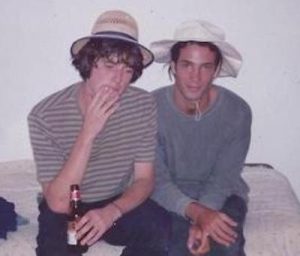
Back at Ben Gurion departures, the smartly-dressed man I ‘d followed was asking me to empty my rucksack. It reminded me of the last time I ‘d been in this particular departure lounge, twenty years earlier at the age of 19 following a glorious 4 months volunteering on an Israeli kibbutz overlooking the Sea of Galilee in the rapturous Golan Heights.
Back then, even the discovery in my bag of the bright orange Stanley knife I ‘d used in my work in the fields couldn’t stall my good humour. I was too intoxicated; with the intensity of the place, and my love for the Israelis I’d met; with their courageous and pioneering spirit and the beauty and sanctity of their faith. And then just as now, I was neither detained nor deported but escorted to the departure lounge and offered best wishes for my trip back to the UK.
Wandering around the ritzy, first-world airport boutiques awaiting my flight, I recalled a conversation I ‘d had on my first night in Jerusalem ‘s Petra Hotel a week before. Mohammed was a big bear of a man, warm and solicitous with a smile that felt like a hug. He helped out at the hotel and we quickly fell into a groove of story-telling and laughter. At length, the conversation turned to Obama ‘s visit to Israel that week and whether we thought he could make a difference in the region. After a few moments of silence, Mohammed became grave, his head in his hands as he looked down at the ground. When he eventually looked at me, his good humour was gone.
“It’s never been like this before, ” he said in a whisper. “It ‘s terrible. The situation is worse than you can imagine. ”
“Please try to do something to help us, ” he pleaded, a hand, almost apologetic, on my shoulder.
I’m so sorry, my friend.
And I’m trying.
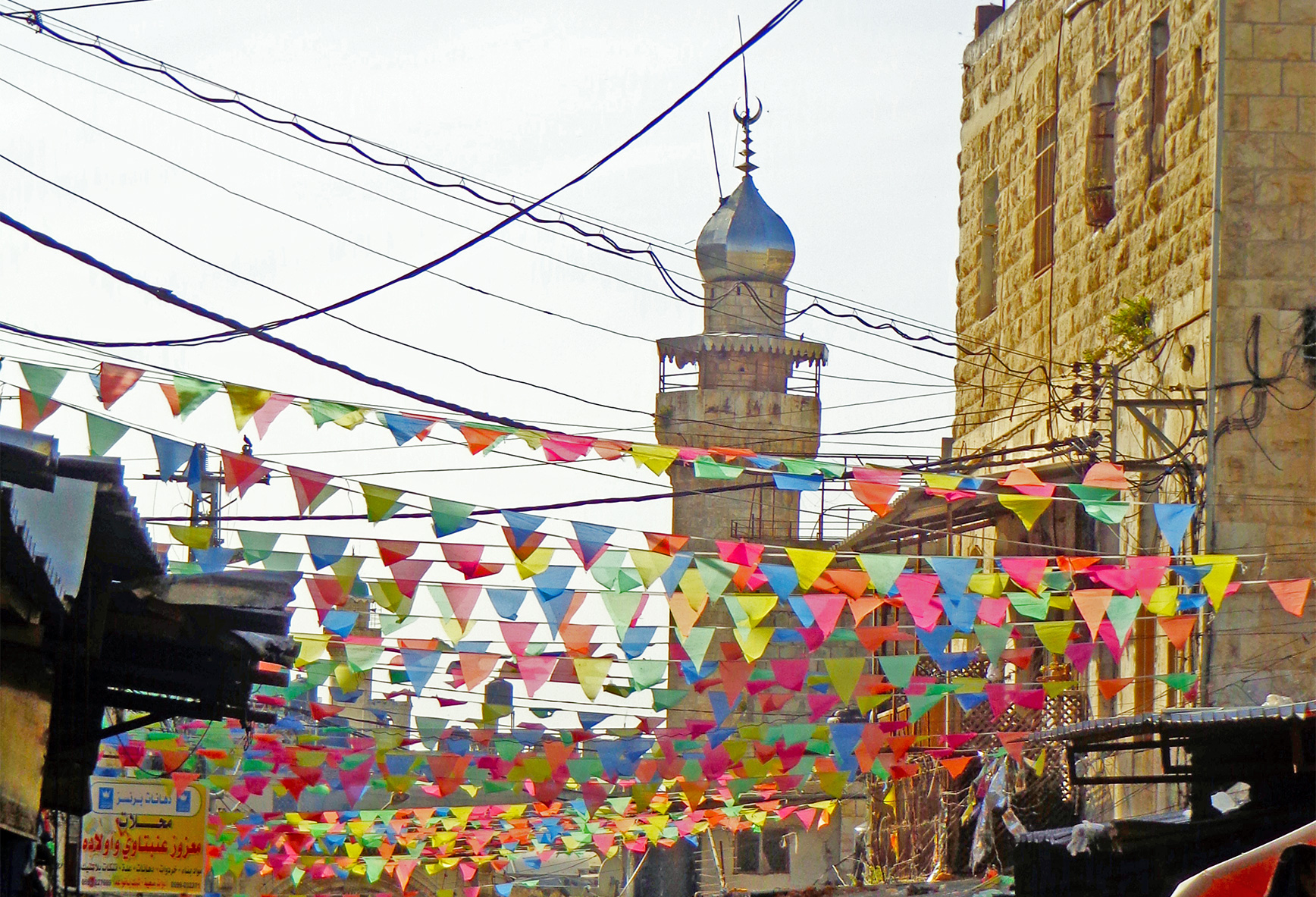
0 Replies to “Palestine”